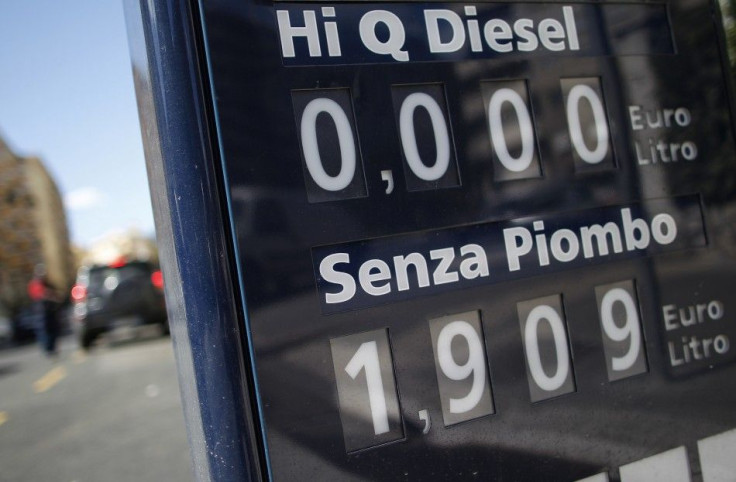Obama, Cameron Reported To Discuss Tapping Oil Reserves

President Barack Obama and British Prime Minister David Cameron discussed the possibility of releasing emergency oil reserves during a meeting Wednesday, two sources familiar with the talks said.
It was the first sign that Obama is starting to test global support for an effort to knock back near-record fuel prices. Obama raised the issue during a broad bilateral meeting at the White House, a British official with knowledge of the discussion told Reuters.
Asked about the talks, a senior Obama administration official said: No agreement was reached. We will continue to work together to address energy security and oil price issues.
The Obama administration clearly views rising gasoline prices as one of the greatest threats to the president's re-election. In a poll by ABC News and the Washington Post published Monday, 65 percent of those surveyed disapproved of the situation with gas prices and only 26 percent approved.
Several Democratic members of Congress have recently called on the administration to tap the Strategic Petroleum Reserve.
While U.S. officials have said for weeks that they will consider all possible measures - including a release from the SPR - to prevent prices from derailing a fragile economic recovery, Wednesday's meeting was the clearest indication that diplomatic talks were moving ahead. Discussions could take months before any decision is made, one of the sources said.
Unleashing emergency stockpiles would well prompt attacks from Republicans, who blame Obama's energy policies for high prices at the pump and could paint an SPR release as a campaign gimmick.
Benchmark crude oil prices have rallied 16 percent this year as new European and U.S. sanctions begin to choke off crude exports from Iran, while supplies from smaller producers, including Sudan and Syria, have also been cut. A release of reserves would be the second such intervention in the past year after the world's consumer nations sanctioned their biggest ever release last June in the wake of Libya's civil war. Prior to that, U.S. officials had spent about six weeks quietly shoring up the support of International Energy Agency member nations and key OPEC allies.
While likely to be popular with many Americans, tapping the SPR alone could antagonize allies in Europe, several of whom remain unhappy over last year's action and are unlikely to back another release. The head of the Paris-based IEA, Maria van der Hoeven, has said in recent weeks she sees no current need for consuming nations to release strategic reserves. Analysts say Obama would likely prefer to press forward with the legitimacy of full IEA member support, but realistically may have to settle for the backing of just a handful of other consumer nations.
Top U.S. officials including Energy Secretary Steven Chu and Treasury Secretary Timothy Geithner have said publicly in recent weeks that a U.S. SPR release is among the options the government is considering.
U.S. gasoline prices are at their highest seasonal levels ever, with retail gasoline near $3.80 a gallon on average.
Gasoline prices tend to rise as the high-demand summer driving season approaches, raising the specter of prices in coming months topping the record of $4.11 a gallon reached in July 2008. U.S. officials have also recently pressed major overseas crude suppliers like Saudi Arabia to boost output and keep a lid on prices.
We think the markets are tight. Therefore, we think there is a need for more production, U.S. Deputy Energy Secretary Daniel Poneman told a conference in Kuwait on Wednesday, prior to the talks in Washington. Oil prices at current levels are so high that it's not consistent with a sustained economic recovery.
The U.S. SPR, the world's largest strategic reserve, can hold as much as 727 million barrels of light oil, equivalent to just over a month of U.S. daily consumption.
If anything, the United States is storing far more oil than is required under international agreements, because domestic production has risen and U.S. gasoline demand has fallen, Philip Verleger of the Peterson Institute for International Economics wrote in a recent report, according to the Washington Post.
The decline in U.S. net imports, Verleger wrote, frees up significant amounts of SPR stocks.
In theory, says James Hamilton, an oil expert at the University of California San Diego, the SPR is supposed to be used only in the event of a sudden and severe loss of oil supply - as happened after Hurricane Katrina, when 25 percent of U.S. production in the Gulf of Mexico went offline.
© Copyright IBTimes 2025. All rights reserved.





















